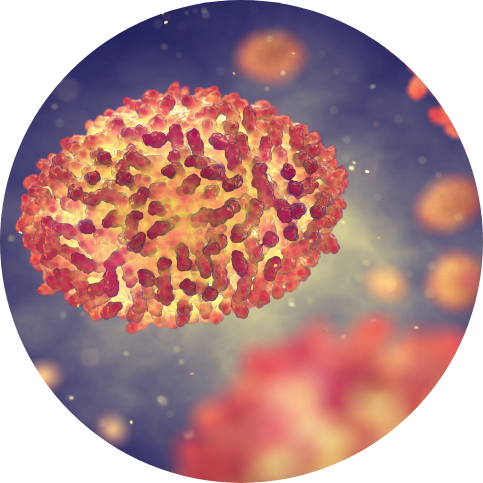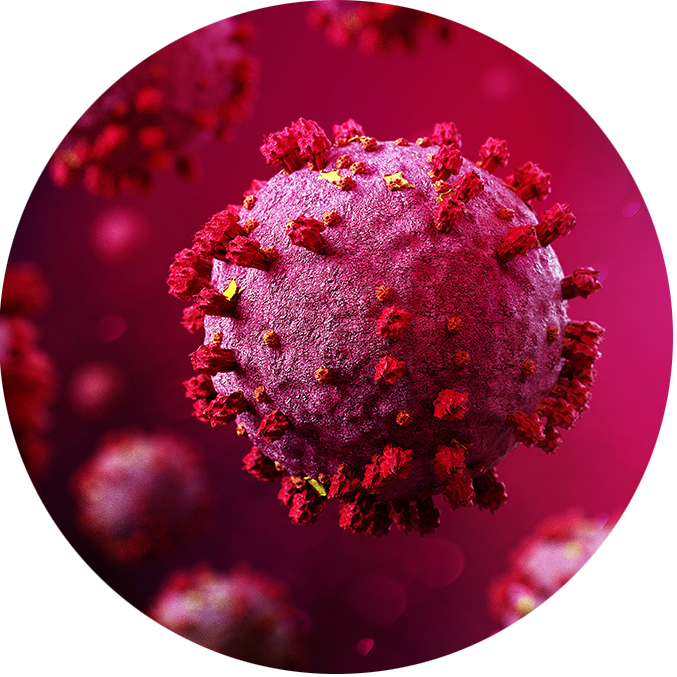Infectious diseases like smallpox, plague, HIV AIDS, malaria and others have been ravaging the world since their discovery. Using live virus vaccine technology, Tonix is responding to the recent monkeypox outbreak by developing a smallpox and monkeypox preventing vaccine. Through both proprietary, in-house initiatives, as well as strategic collaborations, Tonix is working to develop new vaccines and therapeutics to combat current and emerging infectious diseases. Tonix’s pandemic preparedness efforts are targeted to put a stop to all such public health emergencies.
Monkeypox
Monkeypox is a contagious disease caused by infection with monkeypox virus, a virus closely related to variola virus, which causes Smallpox. After Smallpox was declared eradicated and routine Smallpox vaccination was stopped around 1970, Monkeypox has become a growing problem in Africa. In 2022, Monkeypox has been reported in countries outside of Africa that have not historically reported the disease. The virus can spread through direct contact, often skin-to-skin. While Monkeypox is rarely fatal in adults, the virus can cause painful symptoms including a rash that may be located on or near the genitals or anus, and could be on the hands, feet, chest, face or mouth. Other symptoms could include fever, chills, swollen lymph nodes, exhaustion, muscle aches and backache, headache and respiratory symptoms.

94,274
Confirmed Cases Worldwide
118
Locations with Cases
111
Locations That Have Not Historically Reported Monkeypox
As of March 5, 2024 Source: www.cdc.gov/poxvirus/monkeypox/about.html
Smallpox
Smallpox is the result of an infection by the variola virus (VARV) that belongs to the genus Orthopoxvirus. This is an extremely progressive and contagious infection that led to death if not treated quickly. Symptoms included fever, nausea, muscle ache and extreme skin pustules or rash. Smallpox infection is caused by inhalation of the airborne variola virus. The last detected case of Smallpox was in 1977 and by 1980 the World Health Organization has deemed Smallpox eradicated. However, the threat of this infection being used as a bioweapon remains as contagion and mortality rates are extremely high, and hence, an effective vaccine is of utter importance.
Source: https://www.niaid.nih.gov/diseases-conditions/smallpox

COVID-19
SARS-CoV-2 is an extremely contagious infection causing the disease COVID-19, that became a global pandemic in 2019 and proved catastrophic to the world. The death toll is upwards of 6.9 million globally, and while the infection and mortality rates have slowed, the struggle is ongoing. COVID-19 is characterized by fever, sore throat, acute shortness of breath, cough, and oxygen depreciation in the blood. Until the early vaccines came along, management of symptoms was the course of treatment. This disease continues to ravage countries across the world and overwhelm healthcare systems. With new strains of the virus emerging, clinical research must keep up to the pace and match the pace of the fast-changing virus. The early vaccines have been exceptional in controlling the spread; however, more vaccines need to be developed to combat this virus from all aspects of its evolution. Vaccines that not only cause an antibody reaction, but also elicits a T cell response would be the ones that offer a long-term protection.







